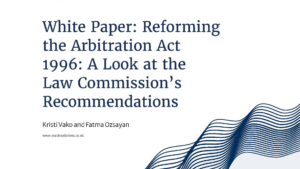Recognising New Rights
Have you got a question?
Earlier this year, the government introduced a swathe of changes to employment rights in this country.
Many of these emanated from a document called ‘The Good Work Plan’ which was heralded as proposing the biggest workplace changes in more than 20 years.
An important change is the introduction of the requirement for all workers to have a written statement of the terms and conditions of their employment and this statement must be given on or before their first day.
Before 6 April, a statement of particulars was to be given to “employees” within two months of commencement of employment. Now, this right is extended to “workers” as well as “employees”.
The distinction between “employee” and “worker” isn’t always clear cut but, in short, an “employee” is an individual employed under a contract of employment, who provides their own services and their employer is obliged to provide them with work, under the control of the employer, in return for an agreed salary or wage.
A “worker” works under a contract or arrangement and agrees to work or provide a service to the other party to the arrangement who is neither a client nor customer; examples include most agency workers, short-term casual workers and some freelancers. The term does not include the self-employed.
The required information under the new written statement includes:
- Days of the week the worker is required to work and whether working hours or days may be variable, with details of how they may vary;
- Any other benefits provided;
- Any probationary period, including conditions and duration;
- Any training provided by the employer, any mandatory part of that training and details of any required training where the employer will not bear the cost;
- Notice periods for termination by either side;
- Terms as to length of temporary or fixed-term work.
Before April 2020, the above information could be given at different times and as separate documents. Now, it must be given together.
There may be more required of employers, but in the long term it may actually streamline the process.
There are exceptions to what information must be given on the first day. Exceptions include pensions, collective agreements (e.g. agreements with unions) and certain information about disciplinary and grievance procedures. These must be given within the old two-month period from the first day.
Information about sick pay, paid leave, pensions and any non-compulsory training entitlement which the worker does not have to pay for can be in a different document – the document must be reasonably accessible and referred to
within the main written statement.
What about existing employees?
If, on or after 6 April 2020, an existing employee requests a written statement of their employment terms, the employer must provide a compliant statement within one month.
An existing employee may only make one such request. Also, if there is a change in any of the particulars required under the new written statement rules, the employer must give the employee a written statement containing details of the change within one month of the change.
The new deadline and requirements for the statement do at first blush sound like quite a burden for employers. However, most if not all of the information was already to be given to the workers and was likely either ready to hand or obtainable without too much effort.
This is essentially consolidating all the required information into a single document and requiring it to be given to new workers either on or before their first day. Short term, there may be more required of employers, but in the long term it may actually streamline the process.
Disclaimer
The information in this article is correct at time of writing. Due to the scheme continuously evolving, it may have changed after publication.
Alessio, with the Marketing team, strives to help colleagues excel with client care, while also keeping the firm ‘on the pulse’ regarding the most critical...
-
Aviation House, 125 Kingsway
London WC2B NH
United Kingdom
- (+44) 020-3051-5060
Book a call back
Share this article
Got a question?
Please complete this form to send an enquiry. Your message will be sent to one member of our team.
Related posts

Companies House registration changes
There were some significant amendments to the Companies House rules, which came into force on 4th March 2024. Although slightly more onerous, these

Reforming the Arbitration Act 1996: A Look at the Law Commission’s Recommendations
Have you got a question? Enquire Now Kristi Vako and Fatma Ozsayan have looked at the new recommendations published by the Law Commission.

Tax Efficient Pension Planning?
With the speculation rife about the new Labour government’s potential changes to pension policies, planning for a tax-efficient retirement is more pertinent than

Shipbuilding: Innovative Technologies for a Sustainable Future
Maritime transport can be considered a fundamental pillar of the global economy; however, its environmental impact raises significant concerns.



